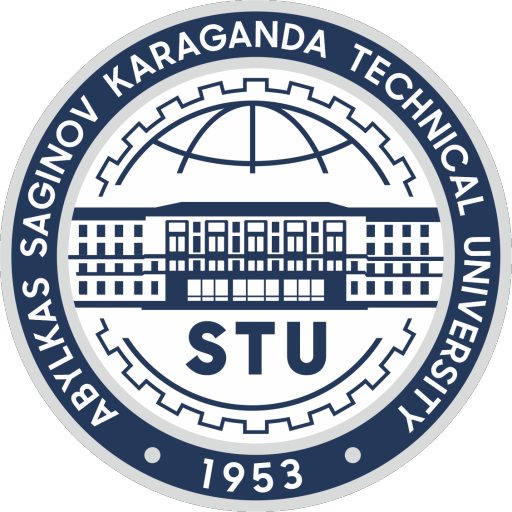Department of «Radio Electronics and Telecommunication Technologies»
«Certificate of the International Accreditation Institute»
«Appendix to the license for the right to conduct educational activities»
DESCRIPTION OF THE EDUCATIONAL PROGRAM
The professional activity of graduates of the program is directed in the field of radio engineering, electronics and telecommunications.
The direction of the specialty and specialization program covers engineering and engineering.
The purpose of the educational program is to teach students general education, basic and specialized disciplines with the achievement of relevant competencies.
In case of successful completion of the full bachelor’s degree course, the graduate is awarded the degree “Bachelor in the field of information and communication technologies according to the educational program 6B06201 – «Radio Engineering, electronics and Telecommunications»».
The educational program provides for the study of the following innovative disciplines:
- Fundamentals of construction and modeling of communication systems;
- Wireless communication technologies;
- Digital communication technologies;
- Corporate communication networks.
In the process of mastering the educational program, a bachelor must have the following key competencies.
The bachelor must:
have an idea:
- about technical means providing transmission and reception of signals, text, images, sounds via wired, radio, optical or other systems, as well as information conversion by electronic means;
- about telecommunication networks and switching systems, systems and devices for data transmission, audio, video and multimedia information;
- about multichannel telecommunication systems, including optical band systems;
- about radio communication systems and devices, including satellite, radio relay and mobile communication systems;
- about systems and devices of sound and television broadcasting, electroacoustics and speech information, multimedia technology;
- on electronic, including computer and microprocessor systems for managing objects, converting and transmitting information; information security tools in telecommunication systems;
to know:
- to know the physical essence of the processes occurring in the cascades and paths of signal conversion and processing of wireless devices and radio communication systems in general;
- principles of construction of radio communication devices and systems; purpose, operating conditions, principles of construction, structural schemes of telecommunication systems, methods of presentation and transformation of messages, signals and interference;
- principles of construction and features of multichannel telecommunication systems with frequency, time and code multiplexing;
be able to:
- the ability to organize and carry out a technical condition check and assess the remaining resource of structures, equipment and communications, apply modern methods of their maintenance and repair;
- perform troubleshooting, improve the reliability and availability of networks;
- be able to make an application for equipment, measuring devices and spare parts, prepare technical documentation for the repair and restoration of operability of equipment, facilities, systems and communication networks;
- the ability to carry out the acceptance and development of the equipment being introduced in accordance with current regulations; be able to organize workplaces, their technical equipment, placement of structures, means and communication equipment.
have skills:
- organization of works on operation, installation and adjustment of technical means;
- ability to carry out calculations on the project of networks, structures and communication facilities in accordance with the terms of reference using both standard methods, techniques and design automation tools, and independently created original programs;
- organization of work on feasibility studies of design calculations using modern approaches and methods in the course of training, production practices are provided.
- QUALIFICATION CHARACTERISTICS OF THE GRADUATE OF THE EDUCATIONAL PROGRAM
3.1. Objects of professional activity of the graduate of the educational program: automated control systems for technological processes of various industries, automated information and control systems for various purposes, automated systems for receiving, processing and transmitting data for various purposes, automated systems for designing systems, objects, devices, automated systems for technological preparation of production of various industries, automated systems for complex testing of parts, products, assemblies, devices in various industries.
3.2. Types of professional activity of the graduate of the educational program:
- service and operational activities;
- production and technological activities;
- organizational and managerial activities;
- design and engineering activities;
- experimental research activities.
- REQUIREMENTS FOR COMPLETING STUDIES AND OBTAINING A DIPLOMA
The educational program is designed on the basis of a modular system for studying disciplines and contains 18 modules that form general education and professional competencies. The program includes theoretical training of 240 credits, professional practice, final certification. The mission of the educational program is to create conditions for the training of competitive and highly educated specialists in the field of automation and control. After successful completion of this program, the student will:
- calculate the median signal-to-noise ratio, signal-to-interference at the input of receiving stations and statistical parameters for these relations; select the main energy parameters of the equipment necessary for calculating the BS route;
- use computer technology for calculations and design of digital communications; simulate a corporate local area network operating on various technologies; use computer technology for calculations and design of software and hardware communications;
- plan and analyze the business activities of the enterprise, business plans, investment projects and offer rational solutions used in investment design, business planning, project management;
- apply information protection methods and hardware and software that ensure data protection in information systems;
- demonstrate fundamental natural knowledge in physics, mathematics, electrical engineering and electronics, apply graphic programs to solve problems in the field of radio engineering, electronics and telecommunications;
- design and develop software for various enterprises for operational purposes and control of radio and telecommunication systems;
- design receivers of radio communication systems, radio broadcasting, radar and radio relay systems for various purposes; develop block diagrams of radio transmitting devices; calculate individual nodes; carry out installation and commissioning of radio equipment;
- to speak correctly in the state, Russian and foreign languages, demonstrate knowledge of legal and ethical norms, possess a high level of culture, morality, argue their position, comply with the rules and regulations of labor protection, ecology and industrial safety.
PASSPORT OF THE EDUCATIONAL PROGRAM
| Name of the educational program |
Network technologies and communication systems |
| Code of the educational program |
6В06202 |
| Assigned degree |
Bachelor in the field of information and communication technologies in the educational program 6B06202 – “Network technologies and communication systems” |
| Duration of education |
4 years |
| Language of education |
Kazakh and russian |
| Goals and objectives of the educational program |
The goal of the EP “Network Technologies and Communication Systems” is to training specialists in the field of development, projection and operation of network technologies, telecommunications, system connection and development of Architecture, Components and operations of servers, routers and switches, as well as familiarization with free local networks (WLAN) and the concept of security. The objectives of the specialty “Network Technologies and Communication Systems” include:
|
| Department |
“Communication systems technologies” |
| National qualifications framework | 6 |
| Industry qualifications framework | 6 |
The educational program “Network Technologies and Communication Systems” is an area of professional activity related to the development, management, maintenance and optimization of network infrastructures and communication systems. This educational program is the focus of modern information technology and is key to ensuring connectivity and efficient data transmission in networks.
The main areas of work and tasks of network technology and communication systems specialists include:
Core competencies that are usually developed by students and professionals:
- knowledge of network protocols: Understanding of the operation of basic network protocols, such as TCP/IP, DHCP, DNS, HTTP, FTP, and the ability to configure and debug network connections.
- network architecture: Ability to develop network architectures, including local and wide area networks, virtual networks and cloud infrastructures.
- equipment installation and configuration: Skills in installing, configuring and maintaining network equipment, including routers, switches, routers and firewalls.
- network security: Knowledge of network security methods and technologies, including firewalls, VPNs, authentication and access control.
- network administration: Skills in network administration, monitoring and managing network resources, as well as solving network problems.
- virtualization and cloud technologies: Knowledge of the principles and methods of working with virtual networks and cloud resources.
- data analysis and monitoring: Ability to collect and analyze data on network operation using monitoring and analytics tools.
- network design and optimization: Skills in designing network solutions, optimizing network infrastructure and traffic management.
- standardization and compliance: Knowledge of network standards and regulations, as well as the ability to comply with them in professional activities.
These competencies enable networking and communications professionals to create, maintain and improve network infrastructures, ensuring reliable and efficient functioning of networks in various organizations and business areas.
Networking and communications specialists can work in a variety of industries, including telecommunications, information technology, banking, Internet service companies, and many others. This specialty requires in-depth knowledge of network protocols, hardware and software, as well as skills in analyzing and solving network infrastructure problems.






